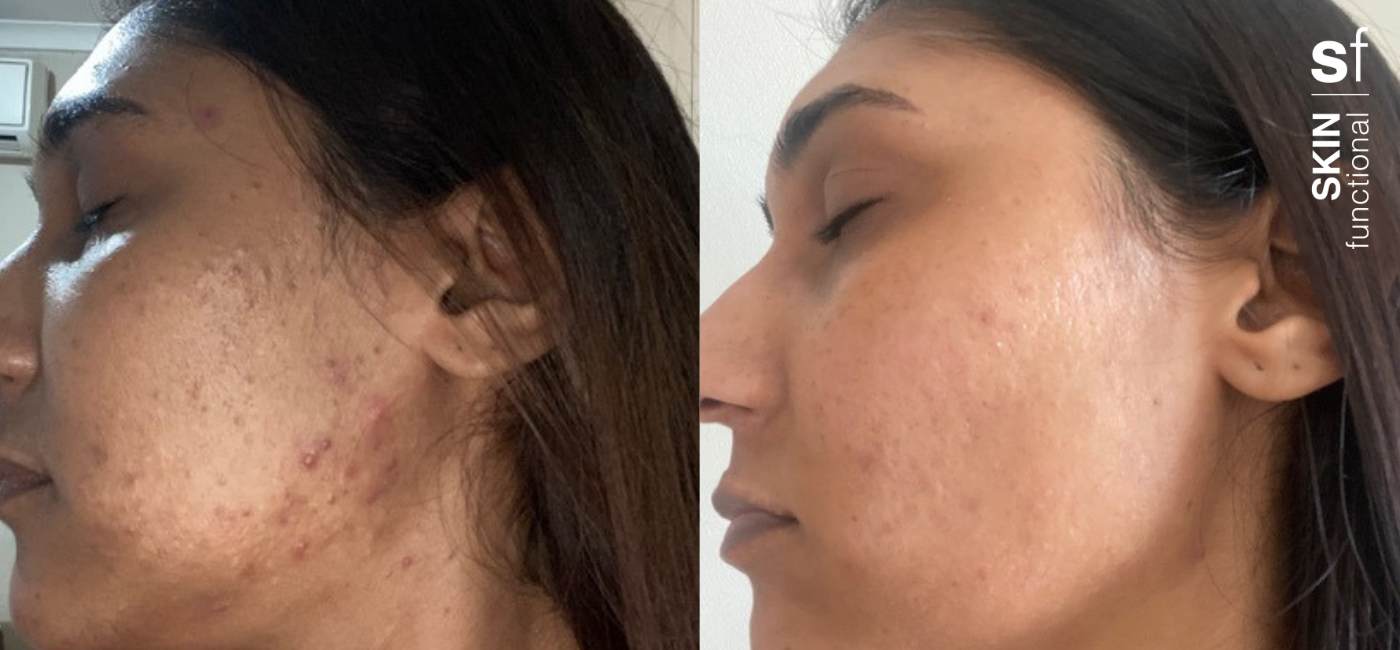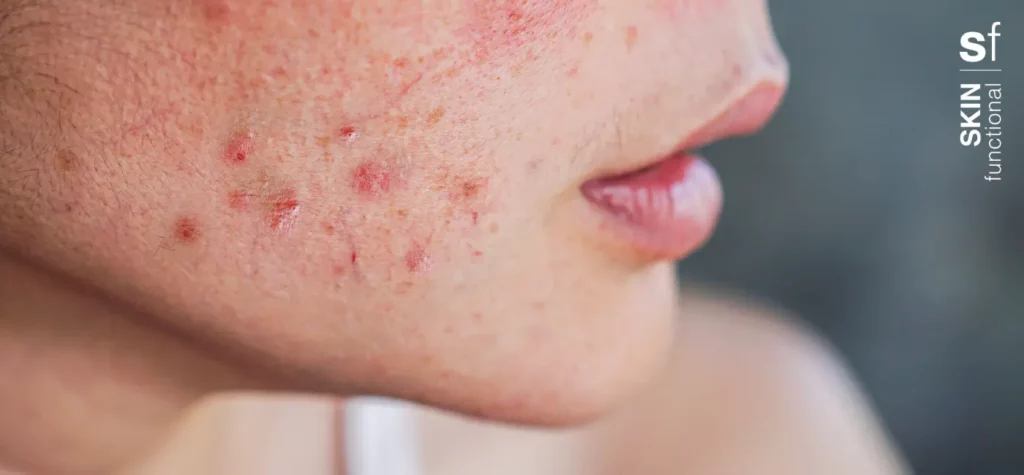
FREE SHIPPING FOR ORDERS OVER R500 WITHIN SOUTH AFRICA
Free shipping for orders over R500
FREE SHIPPING FOR ORDERS OVER R500 WITHIN SOUTH AFRICA
Free shipping for orders over R500

September 2023, South Africa – Acne is no stranger to those who experience it and those who don’t. 1 September marks Acne Positivity Day which is aimed at spreading awareness around this very common skin concern. In South Africa, acne ranks as one of the most common skin concerns, with eczema being a close second.
An estimated 9% of people are affected by acne worldwide. Prevalence varies widely in different geographical areas with Western industrialised countries having much higher rates of acne than some non-industrialised countries. Local skincare brand SKIN functional whose mission is to provide honourable SKINtelligence™ aims to breakdown all the skincare jargon around acne – making it easier for people to understand, manage and treat.
Scientifically, acne occurs when oil and dead skin cells clog your hair follicles. It creates pimples, whiteheads, as well as blackheads. While it is the most common among teenagers, people of all ages can be affected. As common as it is, acne can be a prominent source of insecurity for many people, affecting other aspects of their lives, such as social and personal aspects. National Acne Positivity Day aims to end this by encouraging self-love, acceptance, and appreciation for yourself and your skin.
Historically, the origin of acne is traced back to antiquity. Interestingly enough, the earliest mentions of the condition come from historical records stating that Pharaohs had acne. There is also evidence that shows us that during Cleopatra’s reign, sulphur was used as a topical treatment for acne.
French physician François Boissier de Sauvages de Lacroix first diagnosed acne as a skin concern in the 16th century calling it “psydracia achne” that characterised red and firm tubercles that changed the look of a person’s face during adolescence but were neither itchy nor bothersome. Since then, the recognition and classification of acne advanced further as the years and decades passed by.
In the 21st century, with the power of research, testing and investigation – acne treatment is now understood a lot better and as a result the treatments are more targeted, effective and manageable through trusted, well-formulated skincare products with the correct ingredients.
Along with certain acids and anti-inflammatory ingredients such as azelaic acid and niacinamide – retinol plays a vital role in acne and breakout management. “Retinol helps unblock pores, making it an effective treatment for acne. It can also help reduce signs of aging and improve skin texture and tone. Retinol is less potent than prescription-strength retinoids. Because of this, people may use it to treat mild-to-moderate acne,” explained Kevin Khosa, Skin Expert at SKIN functional.
Retinol comes in different strengths and can be used in forms. “What’s great about retinol is that is a multifunctional ingredient and offers your skin more than one benefit. It belongs to a group dermatologists refer to as retinoids which are derived from Vitamin A, and it is available in the form of serums, gels, creams, lotions, and wipes,” added Khosa.
Dermatologists may recommend retinol for acne, fine wrinkles, or hyperpigmentation. Retinol and other retinoids can help unclog the pores and enable the skin to repair itself, which can reduce swelling and smooth the skin. They can also help improve the appearance of acne marks and scars.
“First, try out different forms of retinoids to see which your skin likes the best to help with acne treatment and management. If you are new to retinoids, start off with a small percentage in a night cream to avoid use during the day as retinoids make the skin photosensitive. Once your skin builds up its tolerability, you may opt to increase your percentage and move onto serums that absorb deeper into your skin, and can be more effective,” said Khosa.
In conclusion, acne is not a life sentence and can be treated. Acne is also not ‘gross’ ‘dirty’ or a ‘contagious disease’, it is a skin condition that is treatable. If you are an acne sufferer, remember that it can be eradicated. Consult a healthcare professional for advice on where to start.
We will give you the right amount of love!
From expert advice, specials and new products, be the first to know.
No spamming, we promise!






Click on the button below and choose 2 free gifts.
Hurry, while stocks last!